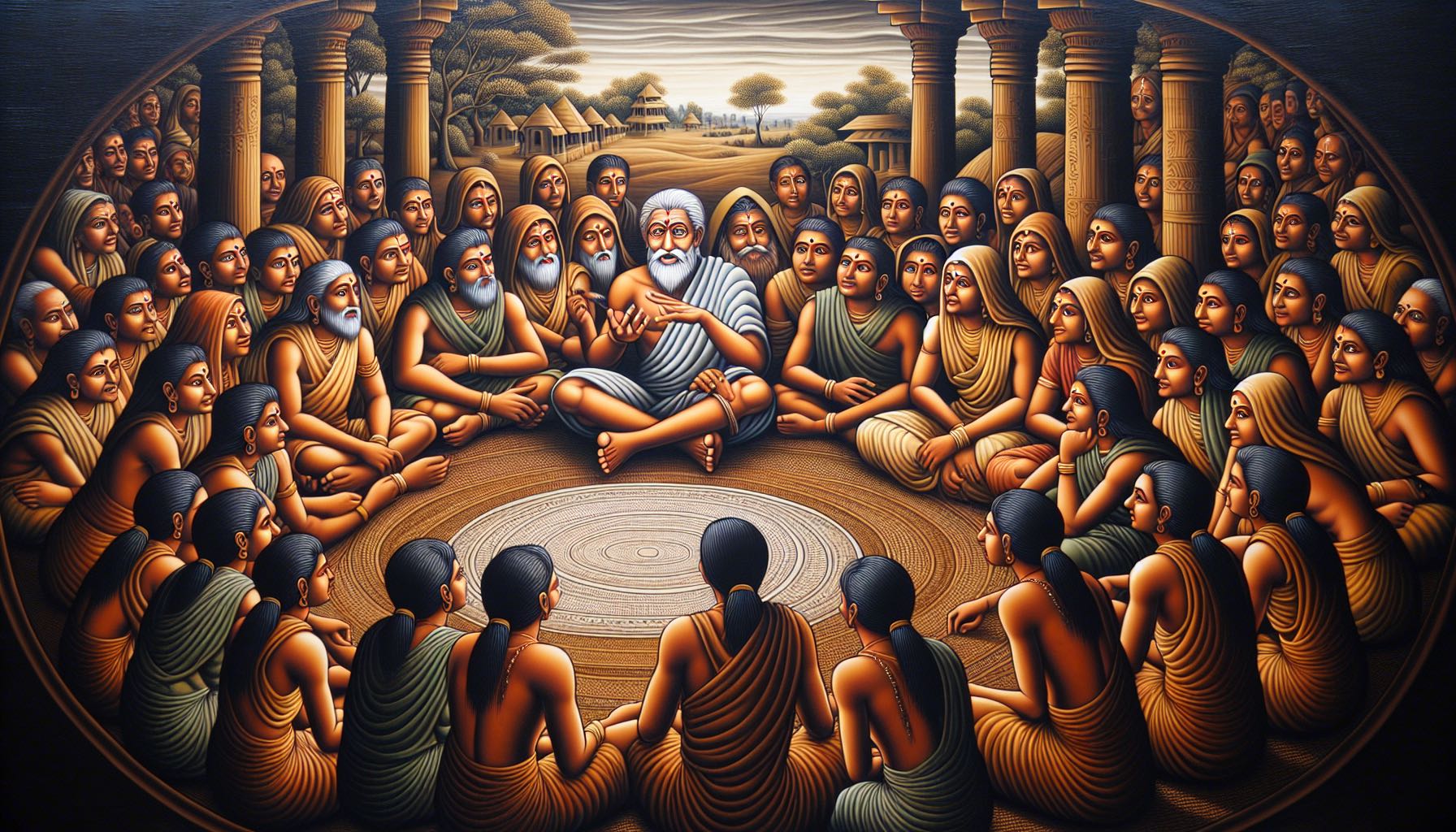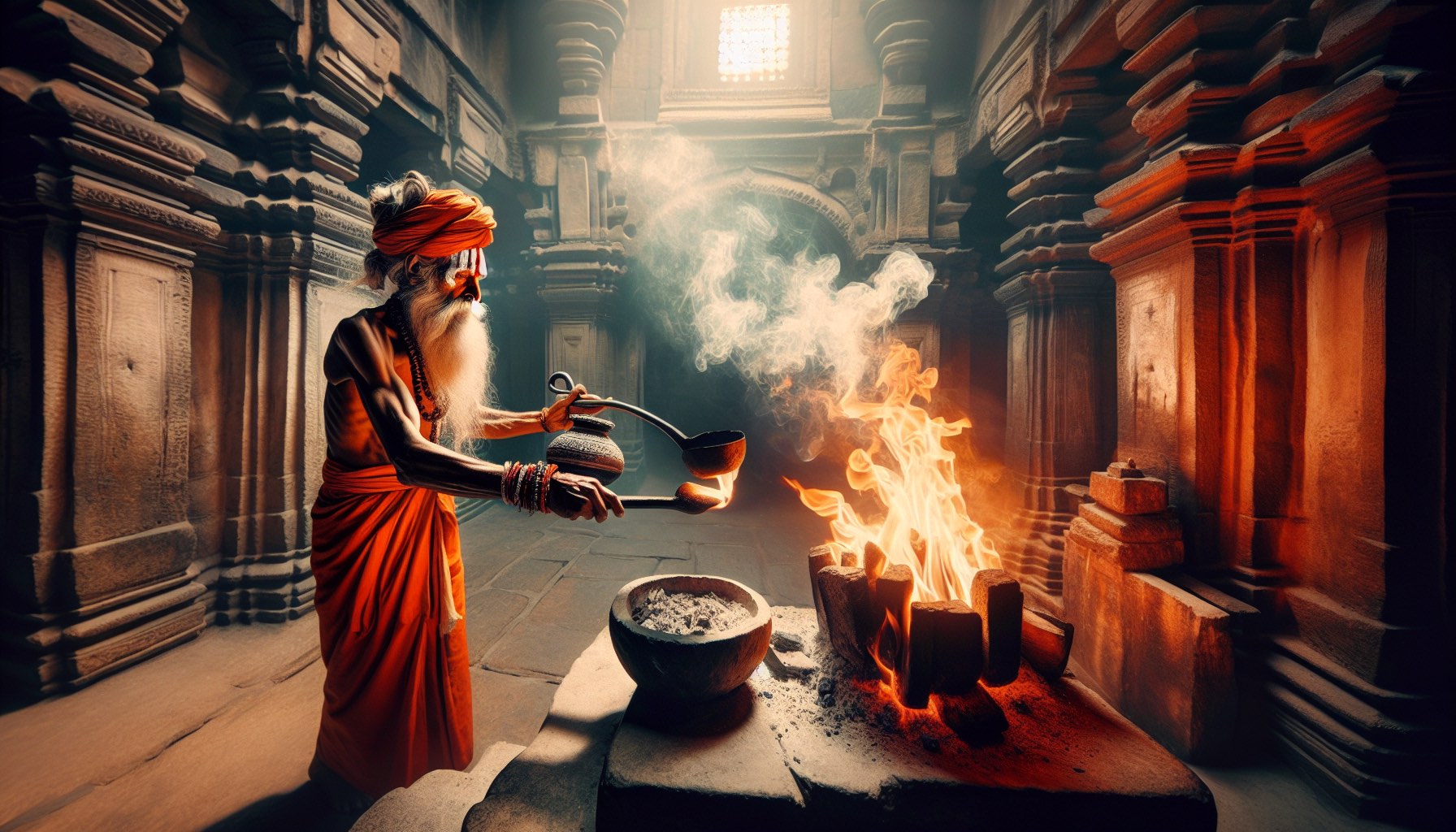BG 4.1 - 42
Krishna said:
I taught this imperishable Yoga to the Sun god Vivasvan; Vivasvan taught it to Manu, the original man; Manu told it to Ikshvaku, the first king.
[1]The saintly kings received this science in a continuous succession, until after a long time, it was lost.
[2]It is this same ancient Yoga that I am now teaching you, for you are my devotee and my friend. This is the supreme secret.
[3]

Arjuna asked:
You were born after Vivasvan, so how were you able to teach him this Yoga in the beginning?
[4]
Krishna replied:
Many of my births have passed, as well as many of yours. I know all of them, but you do not know any of yours, Arjuna.
[5]Although I am unborn and imperishable, and the Lord of all beings, I manifest myself in this world by illusion.
[6]Whenever there is a decline in righteousness, and an increase in immorality, I manifest myself.
[7]For the protection of the good, the destruction of the wicked, and the establishment of righteous action, I am born from age to age.
[8]
One who understands the truth of my divine birth and actions is not born again. When they leave their body, they come to me. Freed from attachment, fear, and anger, they are completely absorbed in me and take my refuge. Many have attained me through the purification of austerity and wisdom. In whatever way one tries to worship me, I welcome them. Whichever path they take, it leads to me in the end. Those who desire the fruit of their actions perform rituals and sacrifices to the gods, achieving quick success in the human realm.
The four divisions of society - priests and scholars, leaders and warriors, farmers and merchants, servants and laborers - were created by me, according to the natural distribution of qualities and instincts. Though I have authored this, I am not the creator, and remain unchanging. I am not contaminated by action, since I do not desire the fruit of actions. One who understands this is freed from the bondage of action. Be like the ancient sages, seekers of liberation who sought deliverance in the performance of their duties.
What is action, and what is inaction? Even the wise are perplexed by this. Therefore, I will tell you of the philosophy of action, by which you can achieve liberation. It is necessary to consider what is righteous action, and what is immoral action, and what is inaction, for the paths of action are mysterious. One who sees inaction in action, and action in inaction, is the wisest among the wise, and has accomplished all actions. The truly wise sage embarks on every undertaking without desire for material gain, and with actions that have been purified by the fire of knowledge. Having surrendered all claim to the fruit of actions, ever contented with the inner self, one ceases to act even if they may be engaged in action. Free from desire, with control of the mind and intellect, having renounced sensual pleasures, and performing actions with the body alone, one remains untainted by sin. Content with whatever comes without effort, transcending the dualities of nature, with a mind situated in goodwill and equanimous to both success and failure, one may act without being bound by the consequences. One who is without attachment has been liberated. Their mind has become established in knowledge, and they work only for the sake of sacrifice, leaving no residue of Karma.
Brahma is the instrument by which the offering is made. Brahma is the offering, and Brahma is the sacrificial fire into which the offering is poured. Brahma is what is to be attained by meditating on Brahma.

Some sages perform sacrifice to the gods alone, while others offer themselves as sacrifice on the eternal altar.
[25]Some sacrifice their physical senses in the fire of self-control, while others sacrifice contact with external objects in the sacrificial fire of their senses.
[26]Others, kindled by wisdom, sacrifice their activities and their breathing into the fire of self-restraint.
[27]With self-control and firm resolve, others sacrifice their material wealth and perform austerities. Some ascetics take rigid vows, offering the study of scriptures and knowledge as sacrifice.
[28]Others, with a controlled diet, are devoted to the control of breathing. One may sacrifice inhalation to exhalation, or sacrifice the outward breath to an inward one, or sacrifice all of their incoming and outgoing breathing.
[29]Others regulate their diet and subsist on what remains after sacrifice. All such people, who understand the principle of sacrifice, have their sins washed away.
[30]They partake in the sacred nectar which remains after a sacrifice, and reach the eternal Brahma. This world is not for those who refuse to sacrifice. How can the heavens be any different?
[31]
These various forms of sacrifice, dependent on action, are the path to your liberation. The sacrifice of wisdom is superior to any material sacrifice, for all actions culminate in knowledge. You shall learn this by placing yourself at the master's feet, questioning them, and serving them. The wise who have realized the truth will teach you wisdom. Know that you shall never again be deluded like this, and by the power of that wisdom, you will see all people as if they were your own self. Even if you are the most sinful of sinners, you can cross the ocean of sin on the boat of knowledge alone. Just as fire consumes the fuel, all actions are reduced to ashes in the fire of wisdom. There is nothing in the world so purifying as knowledge. Those who have perfected the science of action eventually find it within themselves. One who is faithful and can control their senses acquires knowledge. Upon attaining this wisdom, they will soon attain the ultimate peace.
The ignorant, faithless, and skeptics all perish. Those with doubtful minds have no happiness in store for them, in this world or the ones beyond. One whose doubts have been dispelled by knowledge, who has renounced all actions and has control of the self, is not bound by actions. Therefore, pick up the sword of wisdom and cut down this doubt in your heart, which your own ignorance has engendered, and arise on the path of wisdom!
Next chapter

5. Renunciation
Karm Sanyās Yog

